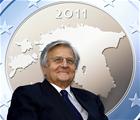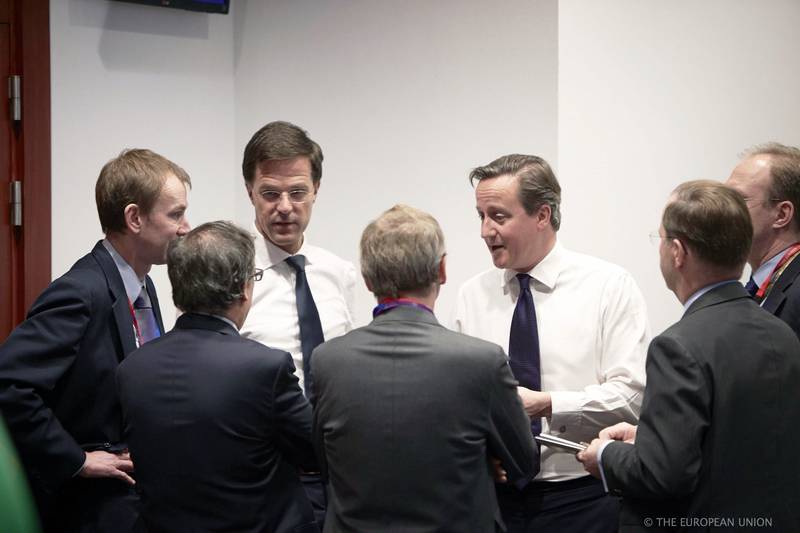The EU is going back to the debate about economic growth
Adelina Marini, September 1, 2011
 'Growth and Jobs' - these two words have turned into a mantra for the European Union for the past more than 10 years, as much before the Great Crisis from 2008 the EU was trying to boost European economic growth through the Lisbon Strategy for Growth and Jobs, adopted in 2000. The 10-year strategy aimed to apply on national level the guidelines defined on European level. Hardly there is even one person left in the union to claim that it was successful. After outlining the weaknesses, the EU came up with a new 10-year document, called Europe 2020, where the focus again is on measures that boost economic growth and jobs.
'Growth and Jobs' - these two words have turned into a mantra for the European Union for the past more than 10 years, as much before the Great Crisis from 2008 the EU was trying to boost European economic growth through the Lisbon Strategy for Growth and Jobs, adopted in 2000. The 10-year strategy aimed to apply on national level the guidelines defined on European level. Hardly there is even one person left in the union to claim that it was successful. After outlining the weaknesses, the EU came up with a new 10-year document, called Europe 2020, where the focus again is on measures that boost economic growth and jobs.
One of the main lessons from the Lisbon strategy's failure is that it was not planned to be financed on European level, which is why now the new call is for Europe 2020 and its priorities to be laid down in the next multiannual budget framework covering the period 2014-2020.
Enough new ideas, it is time for their implementation
For the past almost two years the European Union was too busy with reforming its economic governance in order to avoid a repetition of the crisis, which is still shaking the union, especially the eurozone. That is why, talking about growth was left a little bit aside but with the opening of the new political season it returned invigorated and through several important channels.
On August 27 European Central Bank chief Jean-Claude Trichet held a lengthy  speech at the annual meeting of central bank governors, organised by the Fed in Jackson Hole, in which he focused mainly on economic growth. He said that the financial crisis threatened the long term potential for growth which was why policymakers had to be vigilant for the main prerequisites for stable sustainable growth.
speech at the annual meeting of central bank governors, organised by the Fed in Jackson Hole, in which he focused mainly on economic growth. He said that the financial crisis threatened the long term potential for growth which was why policymakers had to be vigilant for the main prerequisites for stable sustainable growth.
Whatever measures were to be taken, Mr Trichet added, they had to be accompanied by structural reforms and solid macroeconomic policies. The most important thing, though, must be technological progress and innovation. They are the main drivers of economic growth and are important for the differences of economic performance globally. This is especially valid for the countries experiencing demographic problems. "Knowledge spillover between open, dynamic economies could benefit everyone", ECB's chief said.
Probably you won't be surprised by the conclusion of EU's central banker: "The remarkable resilience of the German labour market in the last few years [25], where wage moderation and flexible time accounting shielded the economy from excessive job destruction, illustrates admirably the promise of well-structured reforms", were the words of Jean-Claude Trichet, entirely in unison with the calls of Germany itself its example to be followed as a means to exit the crisis in the eurozone.
Economic growth was among the issues discussed by European Commission President Jose Manuel Barroso and Polish PM Donald Tusk in Brussels on Tuesday. According to Mr Barroso, the economic governance reform package is a decisive step that will allow the EU to have a European approach to 'reconcile' fiscal consolidation, structural reforms and growth. "Growth is essential", he stressed. Polish PM Donald Tusk used his joint news conference with Mr Barroso to boast of the data for Polish economy's growth - 4.3% for the second quarter of this year. He said that the European resources for growth were among those that drive the Polish.
 "I boast of it, because this is really something one can boast of in Europe. I boast of it because we have always stressed that, one of the sources of growth, not only in Poland, is the good use made of the European assistance".
"I boast of it, because this is really something one can boast of in Europe. I boast of it because we have always stressed that, one of the sources of growth, not only in Poland, is the good use made of the European assistance".
The European budget as an investment for growth
It is no accident that one of the main topics of Donald Tusk's talks in Brussels,  whose country now presides the EU, was the already started negotiations on the multiannual financial framework (MFF) for the period 2014-2020. "This is very important, because in fact we believe that in times of difficulty like the one we are now experiencing, we have to send a clear message to the citizens of Europe that the European budget can also be a contribution to growth in Europe", the President of the European Commission said. He welcomed the Polish Presidency for its will to involve directly the national parliaments in the debate how the new financial framework to be designed so as to create growth and jobs.
whose country now presides the EU, was the already started negotiations on the multiannual financial framework (MFF) for the period 2014-2020. "This is very important, because in fact we believe that in times of difficulty like the one we are now experiencing, we have to send a clear message to the citizens of Europe that the European budget can also be a contribution to growth in Europe", the President of the European Commission said. He welcomed the Polish Presidency for its will to involve directly the national parliaments in the debate how the new financial framework to be designed so as to create growth and jobs.
According to Mr Tusk, the talks held so far give grounds for optimism regarding the negotiations on the MFF. During the meeting the date was set for a broad conference on the topic - October 20-21 in Brussels - with the participation of representatives of national parliaments.
And as analysts often commensurate the economic situation in Europe with that in the US, what Trichet did too during the central bankers' meeting in Jackson Hole, we have to say that the issue of growth and jobs has returned recently in the US too,  where it is expected President Barack Obama to outline his new plan for growth and jobs in the beginning of September. He focused on growth and jobs several times during the battle for the raising of the debt ceiling in early Agust.
where it is expected President Barack Obama to outline his new plan for growth and jobs in the beginning of September. He focused on growth and jobs several times during the battle for the raising of the debt ceiling in early Agust.
Unemployment proved to be a major reason for the weak economic recovery in the big and advanced economies in the past year, against the backdrop of the much more optimistic expectations, because of low levels of consumption. In the US unemployment is moving around 9% for almost 2 years now and in the most affected by the debt crisis countries in the euro area it has some striking levels. Spain is the most telling example with over 20%. The debt crisis in the euro area though, hampers economic growth and the possibilities for the creation of new jobs. This is why during the forthcoming political season the EU will have to invest more in solving this problem in order to clear the way for sustainable economic growth.
 Klaus Regling | © Council of the EU
Klaus Regling | © Council of the EU Mario Centeno | © Council of the EU
Mario Centeno | © Council of the EU Mario Centeno | © Council of the EU
Mario Centeno | © Council of the EU Kristalina Georgieva | © Council of the EU
Kristalina Georgieva | © Council of the EU Mark Rutte, David Cameron | © Council of the EU
Mark Rutte, David Cameron | © Council of the EU | © European Parliament
| © European Parliament